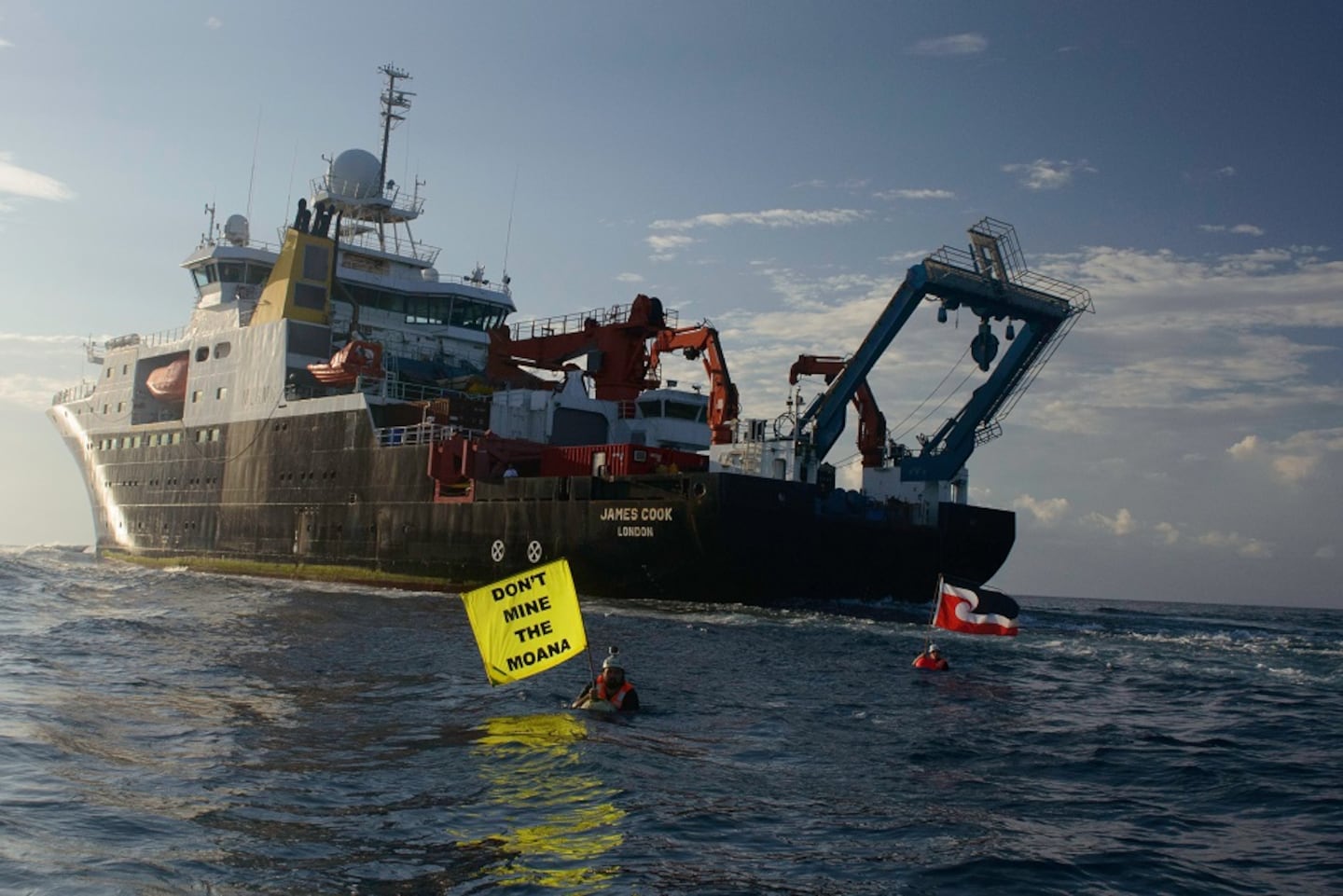The International Seabed Authority failed to reach an agreement on a code to govern deep-sea mining ahead at a meeting last month, instead agreeing to extend the deadline by two years.
Opponents of deep-sea mining say while the green light on mining hasn’t been given, the delay opens a legal loophole for companies seeking permits to trawl the ocean floor for valuable minerals.
The original deadline for regulations to be finalised was early July, triggered by Nauru two years earlier. Mining companies were prohibited from applying for permits from the ISA during that time.
However, opposition groups such as Greenpeace are concerned the delay could allow applications to be made now the “two-year loophole” has ended.
“The deep sea mining industry was gearing up to set loose its mechanical mining robots on the ocean floor but it has seriously underestimated the vitality of the movement to protect the oceans from this dangerous new industry,” Greenpeace Aotearoa campaigner James Hita says.
“The movement to protect the ocean from deep-sea mining has grown so strong now that even in the historically pro-mining stronghold of the ISA, it’s becoming clear that business as usual is over.”
‘Should be prohibited’
Te Pāti Māori co-leader Debbie Ngarewa-Packer is disappointed by the decision.
“I think the most disappointing part of this is one, we should have, and we had the opportunity to provide some certainty and put an end to this ridiculous view that seabed mining is good for the world because it simply isn’t. Deep seabed mining should be prohibited.
“This delay provides too much uncertainty. What does this mean? Are we going to have those that have got permits and licences to now all go for gold? I just think it’s so disappointing to not have that certainty, and to once and for stop deep seabed mining. But it’s just as disappointing, that Aotearoa when it has had the chance domestically and internationally, has failed to lead the way for us as a nation that should be really focused on protecting our planet.”
The New Zealand government last year backed a “conditional moratorium” on seabed mining in international waters. However, Parliament, including the Labour government voted down a bill by Ngarewa-Packer to ban seabed mining altogether in Aotearoa.
Intense debates
The 168 member states met in Jamaica last month to discuss seabed mining. A proposal by Chile, Vanuatu, Palau, France and Costa Rica to discuss the protection of the marine environment and whether deep-sea mining should go ahead was blocked by a number of other states, including China, until the last hour of the assembly when an assurance was made that it would be discussed at the next assembly in 2024.
Some 21 countries now have called for bans, pauses or moratoriums on deep sea mining, with the likes of Canada, Brazil, Finland and Portugal making announcements during the ISA meetings.
“It’s clear that most governments do not want their legacy to be green-lighting more ocean destruction, and it’s clear that people all over the world want to stop deep sea mining before it starts,” Hita says.
“Investors looking at what happened in the past week will see a desperate industry trying to maintain an illusion that it has a future by blocking dissent. Over the course of this meeting, it became clear that pressing ahead to mine the deep sea in the middle of a climate crisis is not only reckless but politically toxic. The world is fighting back against deep-sea mining. There’s still a big fight ahead, but the movement gets stronger by the day,” Hita says.
Why wait?
Ngarewa-Packer is unsure what delaying the discussions to 2024 is going to do.
“What’s going to be easier to devise in 2025? I mean, I guess we’ve got to do the regs, we’ve got to do this, we’ve got to do that. The reality is, is that it’s not hard to do the right thing by our taiao, by our ocean by our environment.
“There is no amount of regulation, there is no amount of policy that can provide protection and certainty for the destruction that this activity will bring to our ocean.
“Aotearoa should completely remove itself from this authority if it cannot be committed to providing certainty for the protection of our ocean for future generations.”




